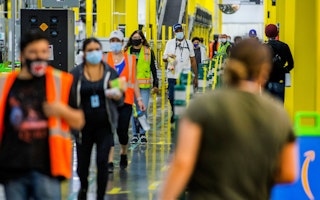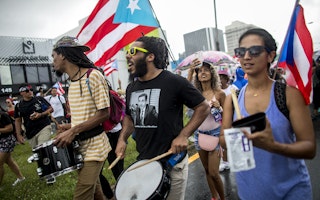Healing the Wounds in Ferguson and Staten Island
By Ken Zimmerman & Damon Hewitt
The recent grand jury decisions in Ferguson, Missouri, and Staten Island, New York—coupled with the killings of other unarmed black men and boys by police officers in Cleveland, Los Angeles, and elsewhere—have understandably triggered frustration, rage, and disbelief. Those feelings have translated into action as protesters have turned out across the country calling for meaningful change.
The U.S. Department of Justice, under the leadership of outgoing Attorney General Eric Holder, is examining whether police violated the civil rights of the late Michael Brown and Eric Garner, even as it conducts an investigation into potential patterns of civil rights violations by the Ferguson police department; the department also recently reported its findings in a similar probe in Cleveland.
Both liberal and conservative leaders have questioned the legitimacy of the grand jury outcomes and opened a national dialogue on how to improve police practices, strengthen public trust, and foster strong relationships between local law enforcement and the people they serve.
All communities deserve effective, responsive, and accountable policing—particularly the African American community, which bears a disproportionate burden of violence in this country. When police practices fail in historically underserved communities, it is especially devastating, both in the toll it takes on people of color and on the legitimacy of law enforcement. The protests taking place throughout the country can serve as a catalyst to further police reform, accountability, and public transparency.
The Open Society Foundations are committed to advancing racial justice—through our ongoing work to end mass incarceration, our programmatic focus on black men and boys, our attempts to close the racial wealth gap, and our efforts to mitigate harsh school discipline policies that disproportionately affect children of color.
To supplement those efforts, we are this week making additional investments totaling $2.9 million in response to the recent events in Ferguson and Staten Island. One portion of the investment is intended to help community groups in Missouri advance initiatives to promote police accountability. A second component will further the development of a nationwide database involving police stops and use of force, thereby addressing one of the systemic flaws that limits the ability of police departments and communities to address bias-related issues.
To advance the work on the ground in Ferguson and the greater St. Louis County, Open Society is making grants to help the Organization for Black Struggle and Missourians Organizing for Reform and Empowerment. They will partner with the Center for Popular Democracy (CPD) and Communities United for Police Reform (CUPR) to obtain greater civilian oversight of local police departments in St. Louis County, enhance accountability, address excessive municipal court fines, improve police recruiting and training, and develop neighborhood assemblies to encourage greater civic participation. CPD and CUPR will also examine the ways in which national organizations can support local groups who are leading community-based mobilization efforts to reform police practices.
The Open Society Foundations will also support the Center for Policing Equity and its work to develop a national database on police behavior—including the use of force. This will help identify when and how racial bias occurs and how to address it. To date, well over 50 police departments around the country have agreed to participate in this unprecedented effort.
In addition, Open Society will provide funding to help youth and community groups make strategic use of such data. Our investment complements ongoing work in this area by the National Science Foundation, the Department of Justice, the California Endowment, the W.K. Kellogg Foundation, and the Russell Sage Foundation.
We know these investments are only a small part of the much larger effort that is needed. But we hope that they are helpful in transforming the current moment of crisis into a movement that can help build toward a better future.
Until January 2018, Ken Zimmerman was the director of U.S. Programs.

Damon Hewitt is a senior advisor for U.S. Programs.


